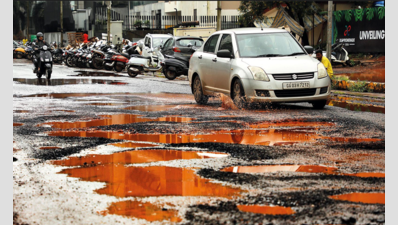ARTICLE AD BOX

Panaji: The public works department (PWD) has decided to make it mandatory to use batch-type hot mix plants for all pothole filling and road-laying works costing over Rs 1 crore in Goa.
This method has already been in use for national highways since 2011, following a directive from the Union ministry for road transport and highways (MoRTH).Batch-type mix plants are preferred not only for producing better-quality roads but also for their environmental advantages, as recommended by the Central Pollution Control Board (CPCB). Officials said the requirement to use this method will now be included in all ongoing and future works costing above Rs 1 crore, even for those where tenders have alreadybeen invited.The earlier method used drum mix plants, which offer less control over accuracy, an official explained. “Batch-type hot mix plants provide a more uniform and high-quality mix with proper gradation, resulting in better durability. These plants allow precise screening and weighing of raw materials, ensuring accurate mix proportions and a more consistent output,” the official said.Due to their precision and quality, batch-type plants are the preferred choice for critical infrastructure projects such as runways and national highways, where high-grade asphalt is essential.
“They also produce lower emissions compared to continuous drum-type plants, aligning with current environmental norms,” the official added.MoRTH first issued guidelines in Oct 2011 mandating the use of batch-type plants for bituminous works on national highways. The first phase, from April 1, 2012, to March 31, 2013, required these plants for projects involving bituminous work costing above Rs 25 crore. Full implementation began on April 1, 2013, making batch-type hot mix plants compulsory for all new bituminous road works.Each plant must have automatic temperature monitoring systems, often supported by GPS and video cameras, to ensure proper laying temperatures. Additionally, every plant is required to maintain a certified on-site laboratory for quality control testing of materials.

 18 hours ago
4
18 hours ago
4









 English (US) ·
English (US) ·